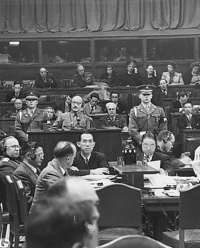TPP Unraveling?
Real News Network
April 27, 14
President Obama returns from East Asia empty-handed after Japan rejects bilateral agreement – but if the TPP moves forward, will it be in the interest of most Americans?
President Obama’s smoking problem in Malaysia
By ERIC BRADNER, Politico
4/28/14 6:53 PM EDT
However, one thing neither leader talked specifically about during the media event was a brewing tension surrounding the negotiations: the way Malaysia’s health officials fear the deal might sabotage their country’s efforts to fight its smoking problem.
Malaysia worries that it will suffer the fate that Uruguay, Australia and Thailand did in other trade deals: dragged into an expensive, yearslong international legal fight over its right to block cigarette companies from advertising.
“The U.S. government’s proposal on tobacco does not go far enough. It is insufficient to protect the government’s sovereignty to do their utmost to protect public health,” said Mary Assunta, a senior policy adviser for the Southeast Asia Tobacco Control Alliance. “Tobacco companies should not interfere with this, nor challenge governments using the free-trade platform.”
Early in the deal’s negotiations, the United States was willing to give Malaysia something close to what it wanted, calling for a so-called safe harbor provision that protected anti-smoking rules. But under pressure from business groups and lawmakers, the Obama administration changed its mind in August.
However, the U.S. proposal doesn’t block tobacco companies from making such challenges in the first place – driving Malaysia’s worries that one of those companies could potentially persuade an independent dispute panel to order the elimination of the government’s prohibition against advertising cigarettes, just as those policies appear to be stopping the growth in the country’s number of smokers.
Obama trip stirs emotions over Asia trade pact
By DOUG PALMER, Politico
4/21/14 3:32 PM EDT
The trip gives the president a high-profile opportunity to ignite action in Congress on trade legislation that is stalled largely because of opposition from fellow Democrats. But even under the most optimistic scenario, that seems like a long shot.
“I basically think the White House knows this is over,” Rep. Louise Slaughter (D-N.Y.) recently told reporters, in regard to the stalled trade promotion authority bill, or “fast track,” that would allow Obama to submit the TPP agreement to Congress for a straight up-or-down vote without any amendments.
…
“If they have really good meetings with really good optics and strong commitments coming out of the Asia trip, that provides the incentives” for Congress to begin work on the trade bill, (Scott) Miller (a trade analyst at the Center for Strategic and International Studies) said. “But it’s not going to happen without a major lift from the executive branch.”
…
Meanwhile, Obama’s visit to South Korea draws attention to a trade deal that in its first two years has not delivered an expected increase in U.S. exports, putting the administration on the defensive as it makes the case to Congress for TPP and trade promotion authority.
…
In a call with reporters, they (Democratic critics) said past trade deals like the North American Free Trade Agreement and the more recent free-trade pact with South Korea have hurt the U.S. economy more than they’ve helped and warned that the TPP agreement would be more bad news for the United States.“TPP would force Americans to compete against workers from Vietnam, where the minimum wage is $2.75 per day,” Rep. Rosa DeLauro (D-Conn.) said. “It threatens to roll back financial regulations, environmental standards and U.S laws that protect the safety of drugs and food and the toys we give our kids.”
Did Japan’s Prime Minister Abe Serve Obama Beefsteak-Flavored Revenge for US Trade Representative Froman’s TPP Rudeness?
Clive, Naked Capitalism
Posted on April 28, 2014
(A)ccording to the US playbook, Froman’s roughing up of Japan in public would be followed at the end of April by US President Obama’s visit to Japan where he would then be able to seal a TPP deal, have a photo op and declare his Asian visit a triumph.
What happened instead is that, according to credible reports, is it was the US which had to capitulate on rice and wheat tariffs. Japan is still holding out for the retention of tariffs on other agricultural products such as pork and beef. As Obama left Japan last week without a deal, an agreement seems as far away as ever.
…
Okay, who having got this far isn’t starting to think to themselves, hey, wait a minute, this doesn’t sound at all plausible. We’re supposed to have had the Japanese Prime Minister and two other key cabinet members dining in public in a Tokyo restaurant bad mouthing (albeit mildly) the US President…and this conversation just happens to have been overheard by some mysterious agent who just happened to blab to the press. Really? If you believe that, Iíd love to talk to you about a great deal I can offer you on the Akashi-Kaikyo Bridge… Much more likely of course is that the whole story was a plant by the Japanese government to make clear what it thinks of Obama.
…
From the Japanese Gendai Daily News-Obamaís Just Left the Country…And Leaves Prime Minister Abe Bitchin’ about the State Visit
US Given the Brush-off at 500-bucks a Head SteakhouseThere’s even more to the steak angle of this story. Right now, Japan is the cause of the impasse in the TPP negotiations (which includes beef tariff elimination which Japan is resisting). But despite Obama’s known fondness for Kobe beef he wasn’t served any during his visit to Japan. On the first day of his trip, he was invited to a ritzy sushi place in Tokyo. And at the state banquet in the Imperial Palace on the second day, he was served steamed sheep leg.
But on the same day as Abe treated Obama to sushi (at a moderately upscale place in Tokyo charging about $300 a head, which is pricy but not exceptional by Tokyo’s famously over the top dining scene standards), he himself was enjoying beefsteak at the ultra-exclusive Kawamura restaurant charging a minimum of $500 per person before extras. Those in political circles commented “You can see how Obama might gripe that he didn’t get to enjoy such wonderful beefsteak because of Abe, due to a misunderstanding (of Abe’s actions)”
TPP Is Right Where We Want It: Going Nowhere
by Maira Sutton, Common Dreams
Tuesday, April 29, 2014
As negotiations continue to be shrouded in secrecy, the Pacific trade deal faces mass opposition both inside and outside of the U.S., and reports say little progress has been made for many months. State leaders and trade delegates have held dozens of closed-door meetings to discuss possible trade-offs and concessions over various tariffs and regulations, including some of the most controversial copyright enforcement provisions in the Intellectual Property chapter. Based upon the leaked text published by Wikileaks in November, several countries are resisting the extreme U.S. proposals on Digital Rights Management (DRM) and Internet Service Provider (ISP) liability.
Following massive blows to the Fast Track bill introduced in January, many Senators are maintaining their stiff opposition against handing over trade authority to the White House. Under Fast Track, also known as Trade Promotion Authority, lawmakers would be limited to an up-or-down vote, and shirk their responsibility to hold proper hearings on its provisions. Republican Senator Roger Wicker has openly stated that he “couldn’t be less optimistic” about any progress being achieved during Obama’s trip to Asia. In an op-ed published this week in the LA Times, three Democratic Representatives reiterated their strong criticism of the TPP, advising that no one should “blindly endorse” this agreement. In November, the New York Times had done precisely that, but they too have suddenly changed their tune-publishing an editorial this week that expressed their heavy doubts over TPP’s objectives. They correctly questioned the administration’s secrecy over the negotiations and wrote that the “Obama administration also needs to do much more to counter the demands of corporations with those of the public interest.”
…
As others have pointed out, the Obama administration only has itself to blame for this mess. By listening to corporate demands above all else, it has alienated itself from its own political party, public interest groups, and most of all, the people whose interests it is supposedly meant to represent. Unless the U.S. trade rep radically changes its approach to this agreement-to make the negotiations truly transparent and incorporate substantive input from the public, for starters-it seems the President is going to be stuck defending a bad deal and a bad process.





